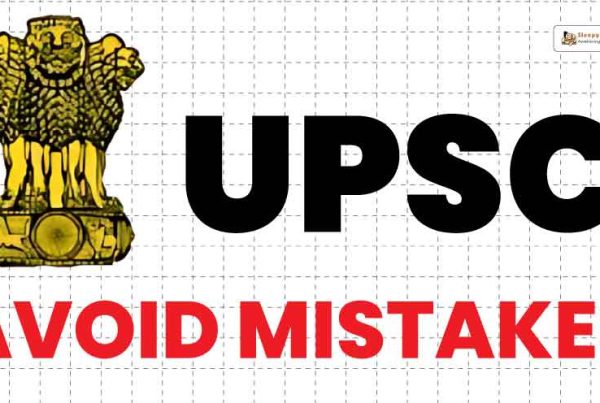Getting ready for the UPSC exams while living in a rural area can feel like climbing a mountain. But hey, with the internet, things are looking up. Online coaching is a game-changer for many, offering flexibility and resources that were once out of reach. This article dives into how rural UPSC aspirants can use online coaching to their advantage, making the best out of what’s available, even when the odds seem stacked against them.
Key Takeaways
- Online coaching offers flexibility for rural students balancing work and study.
- Choosing the right platform involves checking course content, faculty, and costs.
- Creating a quiet study space at home can improve focus and productivity.
- Engaging in live sessions and using recorded materials boosts learning.
- Overcoming tech issues is possible with offline options and community support.
Understanding the Unique Challenges Faced by Rural UPSC Aspirants
Limited Access to Resources
Rural UPSC aspirants often struggle with limited access to necessary resources like books, coaching centers, and study materials. This scarcity can hinder their preparation significantly. While urban areas boast plenty of libraries and coaching institutes, rural students might have to rely on outdated materials or travel long distances for quality education. Moreover, purchasing online resources can also be a challenge due to financial constraints.
Connectivity Issues in Remote Areas
Internet connectivity is another major hurdle for rural aspirants. Many remote areas still face poor or unreliable internet access, making it difficult to attend online classes or download study materials. This connectivity gap puts them at a disadvantage compared to their urban counterparts who can easily access online coaching and a wealth of information at their fingertips.
Balancing Work and Study Commitments
Many rural aspirants juggle between work and study, as they often have to contribute to their family’s income. Balancing these responsibilities can be tough, leaving them with less time and energy to focus on their UPSC preparation. This is particularly challenging for those involved in Rural Non-Farm Economy (RNFE) jobs, which are often unstable and demanding. The pressure to earn while preparing for such a competitive exam can be overwhelming.
Choosing the Right Online Coaching Platform
Evaluating Course Content and Structure
When picking an online coaching platform for UPSC, it’s all about the content and how it’s laid out. A good course should cover the entire syllabus comprehensively. Look for platforms that offer a mix of live classes, recorded sessions, and downloadable materials. This flexibility lets you learn at your own pace. It’s also smart to check if they provide mock tests and practice questions, as these are crucial for exam prep.
Assessing Faculty Expertise and Support
The quality of your instructors can make or break your learning experience. Experienced faculty who have cleared the UPSC themselves can offer invaluable insights. Look for platforms that allow interaction with the faculty through doubt-clearing sessions or mentorship programs. This can be a game-changer in understanding complex topics.
Comparing Costs and Subscription Models
Budget is a biggie. Online coaching can be more cost-effective than traditional classes, but you still need to compare what’s out there. Check if the platform offers a free trial or demo classes. Also, see if they have flexible payment plans or subscription models. Sometimes, paying a bit more is worth it if the course offers more features or better faculty.
Creating a Conducive Learning Environment at Home
Setting Up a Dedicated Study Space
A dedicated study space is like your personal command center. It doesn’t have to be fancy, but having a specific spot for studying helps your brain switch into work mode. Keep it clutter-free to avoid distractions. A simple desk, a comfortable chair, and good lighting are key. If possible, choose a quiet corner of your home where interruptions are minimal.
Minimizing Distractions and Interruptions
Distractions are the enemy of productivity. To keep them at bay, set boundaries with family or roommates. Let them know your study hours so they can help you maintain a quiet environment. Also, consider using noise-canceling headphones or white noise apps. Turn off non-essential notifications on your phone or computer to stay focused.
Utilizing Technology for Better Focus
Technology can be a double-edged sword. While it can distract, it can also help you stay on track. Use apps like Focus@Will or Forest to improve concentration. These apps provide background sounds that enhance focus or gamify staying off your phone. Additionally, digital planners or task managers can help organize your study schedule effectively.
Creating a conducive learning environment at home is not just about physical space. It’s about setting the right mindset and using the tools available to you. With the right setup, you can transform even the smallest corner into a productive study zone.
For more insights on how a conducive learning environment boosts educational success, check out our guide.
Moreover, engaging in online forums and study groups can provide the collaborative environment needed for effective learning.
Developing a Personalized Study Plan
Identifying Strengths and Weaknesses
Creating a study plan starts with knowing where you stand. Dive into your past experiences, analyze what subjects or areas you excel in, and which ones make you groan. This self-awareness helps you focus your energy more efficiently. You might find it helpful to use online assessment tools or mock tests to get a clearer picture of your strengths and weaknesses.
Setting Realistic Goals and Milestones
Once you know your starting point, it’s time to set some goals. Set goals that are achievable and break them into smaller milestones. This way, you can celebrate small victories along the way, which keeps you motivated. For instance, aim to cover a certain number of topics each week or complete a set number of practice questions. Remember, it’s not just about hitting the books hard but about studying smart.
Incorporating Regular Self-Assessment
Self-assessment is like a reality check—it keeps you grounded. Regularly test yourself to see how much you’ve learned and what still needs work. This could be through mock tests or quizzes, which not only evaluate your knowledge but also build confidence. Keep track of your scores and review them to adjust your study plan accordingly.
A personalized study plan isn’t just a schedule; it’s your roadmap to success. By focusing on your unique strengths and areas for improvement, you pave the way for a more targeted and effective preparation strategy.
Maximizing the Benefits of Online Coaching
Engaging Actively in Live Sessions
Participating in live sessions is like being in a virtual classroom. You get to interact with the instructor and other students in real-time. This interaction can make learning more dynamic and less monotonous. Always make it a point to ask questions if something isn’t clear. It helps solidify your understanding and keeps you engaged. Plus, these sessions often cover the latest trends and updates, which are vital for exams like UPSC.
Utilizing Recorded Lectures and Materials
One of the great perks of online coaching is access to recorded lectures. These are lifesavers when you need to revisit tough topics or missed classes. You can pause, rewind, and replay until the concept clicks. Make sure to also download any supplementary materials provided. They’re usually packed with additional insights and examples that can deepen your understanding.
Participating in Peer Discussions and Forums
Engage in forums and discussion groups. These platforms are goldmines for exchanging ideas and clarifying doubts. Discussing with peers can provide new perspectives and solutions to problems you might be stuck on. Plus, explaining concepts to others is a great way to reinforce your own learning. Forums can also be a great way to stay motivated, as you see others facing and overcoming similar challenges.
Online coaching has transformed how we learn, offering flexibility and resources that were unimaginable a decade ago. Embrace these tools fully to enhance your UPSC preparation.
Leveraging Technology for Effective Learning
Using Apps and Tools for Time Management
Time management can make or break your UPSC preparation. There are plenty of apps that can help you organize your study schedule. Apps like Trello and Notion allow you to create to-do lists and set reminders for important tasks. Using these tools helps in keeping track of your progress and ensures you don’t miss deadlines. Also, apps like Forest encourage you to stay focused by rewarding you for not using your phone during study sessions.
Incorporating Multimedia Resources
Incorporating multimedia into your study routine can make learning more engaging. Videos, podcasts, and interactive simulations can break the monotony of reading and help reinforce complex topics. For instance, using AI and machine learning tools can tailor your learning experience, making it more efficient and aligned with modern technological advancements. They can analyze your performance and suggest areas for improvement, making your study sessions more targeted.
Tracking Progress with Digital Tools
Tracking your progress is crucial to understanding how well you’re doing. Digital tools like Google Sheets or Microsoft Excel can be used to log your daily or weekly achievements. You can set up a simple table to record the number of hours studied, topics covered, and mock test scores. This helps in identifying patterns in your study habits and areas where you need to put in more effort.
Consistently using technology not only enhances learning but also makes the preparation process more enjoyable. It transforms the way aspirants interact with study material, making it more accessible and easier to understand.
Overcoming Connectivity and Technological Barriers
Exploring Offline Study Options
For many rural UPSC aspirants, reliable internet can be a luxury. But don’t let that stop your preparation. Offline study options can be a lifesaver. Programs like SWAYAM Prabha offer educational content through DTH channels, which means you can access valuable lectures without needing the internet. Consider downloading study materials when you have access to Wi-Fi and use them offline. Libraries can also be a great resource for offline study.
Seeking Community Support and Resources
Sometimes, the community around you can be a surprising source of support. Reach out to local educational centers or NGOs that might offer study sessions or resources. Form study groups with fellow aspirants to share materials and insights. This not only helps in accessing different viewpoints but also builds a support system. Community-driven initiatives can often provide access to shared resources, like books or notes.
Adapting to Technological Limitations
Let’s face it, not everyone has the latest gadgets or high-speed internet. But you can still make do with what you have. Use basic smartphones to access study materials, and if possible, invest in a basic tablet for reading PDFs or watching downloaded lectures. Keep your devices updated to ensure they run efficiently. Remember, it’s not about the gadget but how you use it.
“In the journey of UPSC preparation, adapting to technology is not just about having the best tools, but making the best use of what’s available.”
By focusing on these strategies, rural aspirants can significantly mitigate the challenges posed by connectivity and technological barriers. It’s all about being resourceful and making the most out of available options.
Building a Supportive Study Network
Connecting with Fellow Aspirants Online
Engaging with other UPSC aspirants online can be a game-changer. Platforms like Telegram and WhatsApp are buzzing with study groups where you can share insights and strategies. Joining these groups can help you stay updated on important topics and exam trends. Building a community of peers who are on the same journey can provide emotional support and keep you motivated.
Engaging with Mentors and Educators
Having a mentor can make a big difference in your preparation. Experienced educators can offer guidance, clarify doubts, and provide valuable feedback on your progress. It’s beneficial to participate in webinars or online sessions where you can interact with these mentors. They can help you navigate complex topics and develop a deeper understanding of the syllabus.
Participating in Online Study Groups
Online study groups are a great way to enhance your learning. These groups provide a platform for discussing difficult topics, exchanging notes, and solving doubts together. They foster a sense of accountability and encourage you to stay on track with your study schedule. Plus, discussing with peers can help you gain diverse perspectives and improve your analytical skills.
Creating a supportive study network is like having a safety net during your UPSC preparation. It not only aids in knowledge sharing but also boosts your confidence as you progress through the syllabus.
- Join online forums and discussion boards.
- Attend virtual study sessions regularly.
- Share resources and study materials with peers.
For more on how to collaborate with peers and join study groups, check out these insights. They provide a detailed look at enhancing your learning through community engagement.
Staying Motivated and Focused Throughout the Preparation
Setting Daily and Weekly Study Targets
Creating a schedule with daily and weekly targets can really help you stay on track. It gives you a clear path and makes sure you’re covering everything you need. Start by breaking down your syllabus into smaller, manageable parts. Then, set specific goals for each day and week. This way, you’re not overwhelmed, and you can measure your progress easily. Consistency is key, so try to stick to your schedule as much as possible.
Celebrating Small Achievements
Acknowledge your wins, no matter how small. It’s easy to get caught up in the long journey of UPSC prep, but celebrating these small victories keeps your spirits high. Did you finish a tough chapter? Great! Treat yourself to something you enjoy. These little celebrations act as a reminder that you’re moving forward, and they keep you motivated to tackle the next challenge.
Maintaining a Positive Mindset
Staying positive is crucial during this intense preparation phase. There will be days when things don’t go as planned, and that’s okay. Instead of getting discouraged, focus on what you’ve accomplished so far. Surround yourself with positive influences, whether it’s through reading motivational articles or talking to peers who uplift you. Remember, a positive outlook not only helps you stay motivated but also enhances your ability to learn and retain information.
Preparing for the UPSC exam is a marathon, not a sprint. Keep your eyes on the prize, stay disciplined, and remember why you started this journey. Your dedication today will pave the way for your success tomorrow.
Balancing Online Coaching with Self-Study
Allocating Time for Independent Research
Finding the sweet spot between online coaching and self-study is like juggling. You’ve got to allocate time wisely. Online coaching platforms, like those offering recorded sessions, let you learn at your own pace. But don’t forget to set aside time for independent research. This is crucial. Dive into books, articles, and other resources that aren’t part of your coaching curriculum. Doing this helps you gain a broader perspective and fill in any gaps.
Integrating Coaching Insights into Self-Study
When you’re going through your coaching material, take notes. Jot down insights that stand out. Later, when you’re studying on your own, revisit these notes. They’ll help reinforce what you’ve learned. Try to connect new information with what you already know. This method strengthens your understanding and retention. Think of it as building a web of knowledge where everything is interlinked.
Ensuring Consistent Revision and Practice
Consistency is the name of the game. Make a schedule that includes regular revision sessions. Revisiting topics helps cement them in your memory. Use a mix of online resources and traditional study methods. Online IAS coaching offers flexibility and tools like mock tests and quizzes, which are perfect for practice. Remember, practice doesn’t make perfect—perfect practice does. So, focus on quality over quantity.
Balancing online coaching with self-study is all about creating a rhythm that works for you. It’s about weaving together the structured support of coaching with the freedom of self-exploration. This balance not only prepares you for the exam but also nurtures a deeper understanding of the material.
Preparing for the UPSC Exam Day
Understanding the Exam Format and Requirements
The UPSC exam is not just any test; it’s a marathon of sorts. Familiarize yourself with the structure—Prelims, Mains, and the Interview. Each stage has its own unique demands. For instance, the Prelims are objective, while the Mains require detailed written answers. Knowing what to expect can help ease anxiety.
Practicing with Mock Tests and Simulations
Mock tests are your best friends when it comes to the UPSC. They help you get a feel for the actual exam. Try to simulate the exam environment—sit at a desk, time yourself, and avoid distractions. This practice can significantly boost your confidence. Mock tests can highlight your strengths and weaknesses, offering a clear path for improvement.
Managing Stress and Anxiety Effectively
Stress is inevitable, but managing it is key. Develop a routine that includes breaks, exercise, and maybe even meditation. On exam day, eat a light breakfast, and reach the center early to settle in. Remember, a calm mind performs better.
“It’s just another test,” you remind yourself, taking a deep breath. You’ve prepared for this, and now it’s time to show what you’ve got.
Preparing for the UPSC exam day involves understanding the format, practicing with mock tests, and managing stress effectively. Each step is crucial in ensuring you walk into the exam hall with confidence and clarity.
Evaluating the Impact of Online Coaching on Performance
Analyzing Test Scores and Feedback
When it comes to online UPSC coaching, analyzing test scores and feedback is like getting a report card for your efforts. It’s crucial to track how you’re doing, so you know where you stand and what needs fixing. Regular assessments, like mock tests, give you a snapshot of your strengths and weaknesses. Look for platforms that offer detailed feedback, as it can guide you on what areas to focus on. Not only does this help in understanding your current level, but it also provides a clear path for improvement.
Adjusting Study Strategies Based on Results
Once you have your test scores and feedback, the next step is to tweak your study strategies. This is where the real work begins. If you notice a pattern in your mistakes, it’s time to change things up. Maybe you need to spend more time on certain topics or adjust your study schedule. It’s about being flexible and willing to adapt. By continuously refining your approach, you’re not just working harder but smarter.
Reflecting on Personal Growth and Learning
Reflecting on your journey is just as important as the scores and strategies. Take a moment to think about how far you’ve come since you started. What skills have you gained? How has your understanding of the subjects improved? This reflection can be incredibly motivating and can keep you grounded. It’s not just about passing the exam but also about personal growth. This mindset can make the preparation process more rewarding and less stressful.
Online coaching can really change how well you perform. It gives you the chance to learn from experts and get help whenever you need it. If you’re looking to boost your skills and reach your goals, check out our website for more information and to start your journey today!
Conclusion
In the end, rural UPSC aspirants have a golden opportunity to make the most of online coaching. It’s all about finding the right balance and using the resources smartly. With platforms like Sleepy Classes, which offer tailored study plans and continuous mentorship, students can really boost their chances of success. The flexibility and support provided by such programs mean that even those in remote areas can access top-notch guidance. So, if you’re aiming for the UPSC, don’t let your location hold you back. Dive into the world of online learning, stay committed, and let these tools guide you to your goal.
Frequently Asked Questions
What is the UPSC exam?
The UPSC exam, or Union Public Service Commission exam, is a test to select candidates for various civil service positions in India, like IAS and IPS.
How can online coaching help in UPSC preparation?
Online coaching provides flexible learning options, access to expert faculty, and a wide range of study materials, making it easier for students to prepare effectively from anywhere.
What are the challenges faced by rural UPSC aspirants?
Rural UPSC aspirants often face challenges like limited access to resources, poor internet connectivity, and balancing study with work or family responsibilities.
How do I choose the right online coaching platform?
Look for platforms with good course content, experienced faculty, reasonable pricing, and positive reviews from past students.
Why should I join Sleepy Classes for UPSC preparation?
Sleepy Classes offers a well-curated study plan, continuous mentorship, and updated content to help aspirants succeed in the UPSC exam.
How can I stay motivated during my UPSC preparation?
Set daily and weekly study goals, celebrate small achievements, and maintain a positive mindset to stay motivated.
What should I do if I have poor internet connectivity?
You can explore offline study options, seek community resources, or adapt by downloading materials when you have access to better connectivity.
How important is self-study along with online coaching?
Self-study is crucial as it allows you to explore topics independently, reinforce learning from coaching, and ensure thorough revision.







